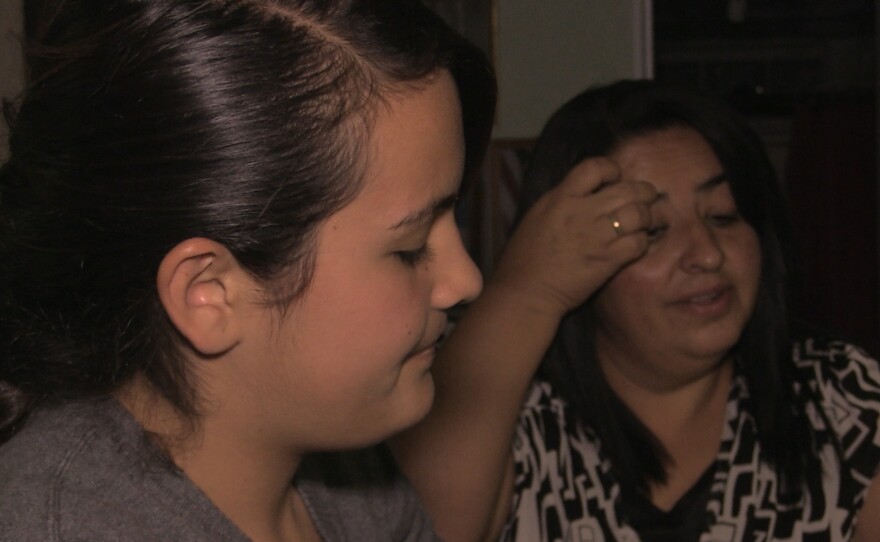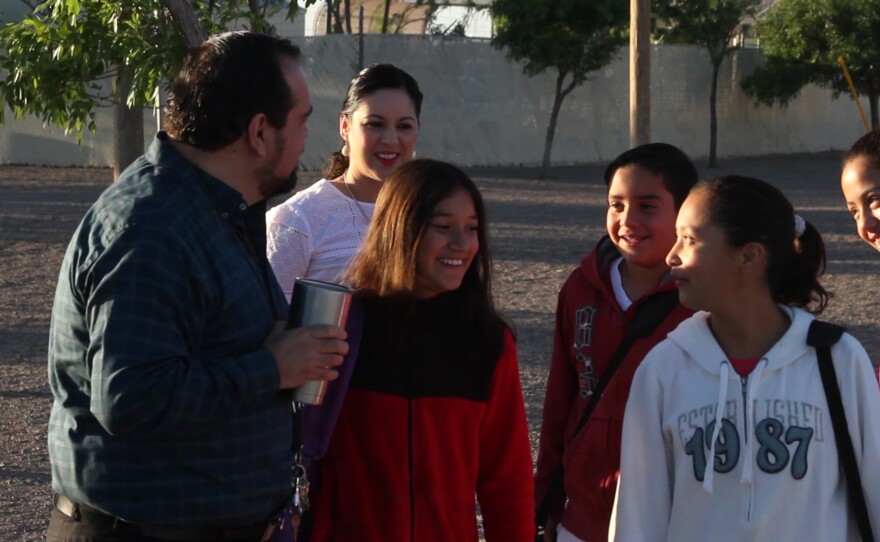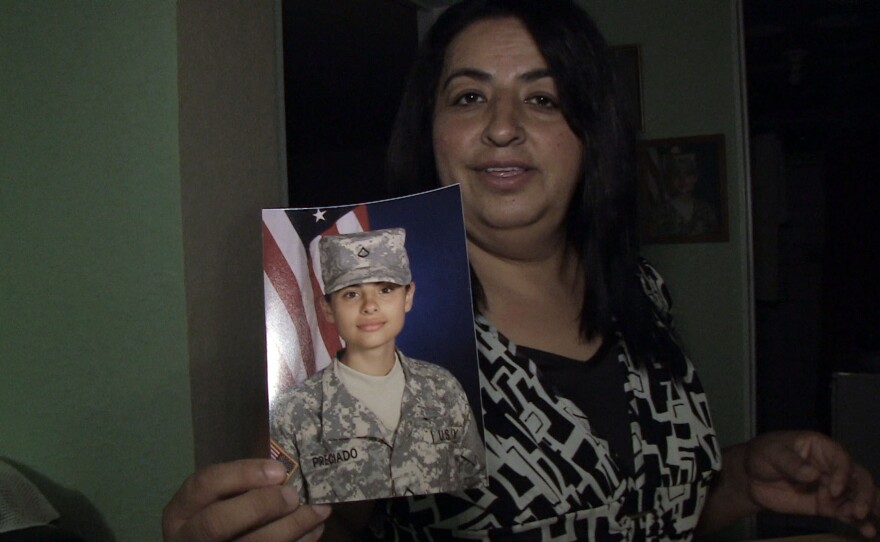Daylight hasn’t broken before 500 students from the tiny Mexican town of Palomas are up and on their way to school. But it’s not your typical commute. To get to class, these kids have to cross an international border.
They show their U.S. passports and birth certificates. Immigration and Customs officials inspect their school bags. Then they’re bussed to school in Luna County, New Mexico.
Lizett Preciado is a senior at Deming High School in Luna County. A U.S. citizen, she has lived in Palomas with her parents for seven years.
“It's good to go to school over there. There's more opportunities to study and have a better job in the future," Preciado said. “It is great that this border allows us each day to go to school there.”
Lizett and her family moved to Palomas from Colorado after her mother, Rosa Maria Preciado, was deported for being in the country illegally.
“I felt really bad, really badly, because I have my four children that are citizens of the United States and my husband was a resident,” Preciado said. “I didn’t want to go back to Mexico. I know it is my country, but life in Mexico is very hard.”
Preciado and her husband, Ramon, make their living in Palomas raising goats. Ramon still crosses occasionally back into the U.S. to work. But because of Preciado's deported status, the isolated border crossing at Palomas is as close as she can get to her old life in the U.S.
Preciado said having her children educated in the U.S. was important to her. That’s why they settled in Palomas.
“A friend said Palomas would be a good option to live with my children. It’s easy to cross into the U.S. and there was a bus to take them to school.” Preciado said.

Every year schools in Luna County welcome students and families coming from all over the country: Tennessee, Utah, Illinois.
The principal of Columbus Elementary, Armando Chavez, said the schools usually see an influx of students when states enact strict immigration laws as Arizona did in 2010.
“We are dealing with children that come from South Dakota, Missouri, it can be any state that they come. But we embrace our children that come to our door everyday,” Chavez said.
Chavez said most of his students have at least one parent that can’t legally enter the U.S.
“We are sometimes the holding spot for them, for them to fix the papers correctly.”

School districts in Texas and California also allow students living in Mexico to come to school. But they often charge out-of-district fees or are private. For the U.S. citizens students coming from Palomas to school in Luna County, the education is free.
And students have been crossing the border to attend school in Luna County since 1948. So it's not surprising that despite the 10-foot-high border fence, the ties between the schools in Luna County and the community of Palomas run deep — from businesses to culture to marriage.
Many teachers in the Luna County schools crossed the border as students. Ricardo Gutierrez is one of them. He teaches fifth grade at Columbus Elementary, the school he attended as a child.
“They gave me the opportunity,” Gutierrez said. “So now it’s my turn to give back to the community.”
Gutierrez said keeping parents engaged in their children’s education is the biggest challenge. He opens his restaurant, San Jose, in Palomas for parent-teacher conferences via Skype. And every year he hosts live graduation ceremony watch parties for parents who can’t cross north.
But not everyone living in Luna County thinks state money should be used to educate students who don’t live in the U.S.
“They don’t live in the United States so that forces the state of New Mexico to pay for their education as well as those of us that are taxed in the Luna County to pay for them too,” said Russ Howell, chairwoman of the Luna County Republican Party.
Howell said that allowing students to get a free education in Luna County motivates people to exploit birthright citizenship.
“They are getting a free education because their mother decided to give birth in the United States rather than back in Mexico where they live,” Howell said.
The New Mexico State Constitution requires public schools to be “open to, all the children of school age in the state” regardless of residence.
In 1993, two New Mexico residents filed a lawsuit to stop state money from being used to educate students crossing into the district from Palomas, but the court ruled against them.
Principal Armando Chavez said if there are concerns about students not paying their fair share, that is more reason to make sure they’re getting a good education.
“They are going to more than likely live in the U.S. We want to educate them. We want to get them to the highest level of education possible so they can be successful, so they can become productive members and contribute back,” Chavez said.

Rosa Maria Preciado said her three oldest children are already making their contributions. Her oldest daughter serves in the U.S. military and her two sons have careers in engineering and manufacturing in the U.S.
“I am very proud because ... I have a lot of family and almost none of their kids graduated from anything, not even high school,” Preciado said. “I have two that graduated and they have their careers. That has made me very proud and given me a lot of happiness.”
Preciado’s youngest child, Lizett, plans to study engineering at Colorado State University.
Preciado hopes an immigration pardon waiver she is eligible for in two years will allow the whole family to reunite in the U.S. But there are no guarantees.






